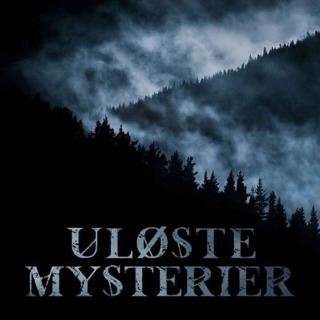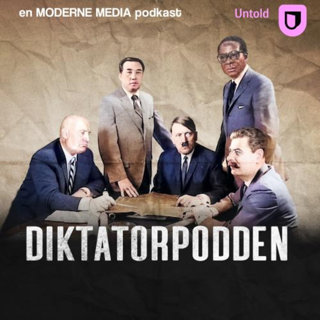
Infinity
Melvyn Bragg and guests discuss the nature and existence of mathematical infinity. Jonathan Swift encapsulated the counter-intuitive character of infinity with insouciant style:“So, naturalists observe, a fleaHath smaller fleas on him that preyAnd these hath smaller fleas to bite ‘emAnd so proceed ad infinitum.”Alas, the developing utility mathematicians put to the idea of infinity did not find the English philosopher Thomas Hobbes quite so relaxed. When confronted with a diagram depicting an infinite solid whose volume was finite, he wrote, “To understand this for sense, it is not required that a man should be a geometrician or logician, but that he should be mad”. Yet philosophers and mathematicians have continued to grapple with the unending, and it is a core concept in modern maths.So, what is mathematical infinity? Are some infinities bigger than others? And does infinity exist in nature?With Ian Stewart, Professor of Mathematics at the University of Warwick; Robert Kaplan, co-founder of The Math Circle at Harvard University and author of The Art of the Infinite: Our Lost Language of Numbers; Sarah Rees, Reader in Pure Mathematics at the University of Newcastle.
23 Okt 200342min

The Schism
Melvyn Bragg and guests discuss events surrounding the medieval division of the Christian Church. In 1054, Cardinal Humbert stormed into the Cathedral of Constantinople and charged down the aisle. In his hand was a Papal Bull – a deed of excommunication - and he slammed it down onto the altar. As he swept out of the startled church, the Papal Legate and his entourage stopped at the door and symbolically shook the sullied dust of Eastern Christianity from their Catholic boots. The Pope of Rome had decreed that the Patriarch of Constantinople was denied his place in heaven, and soon afterwards the Patriarch excommunicated the Pope in return.It was the culmination of an argument over a single word in the Nicene Creed - but after a thousand years of being one Church, so began a permanent rift.But what were the real underlying reasons behind the split, what were its effects and why did it take until December 1965 for the excommunications to be finally revoked?With Henrietta Leyser, medieval historian and Fellow of St Peter’s College, Oxford; Norman Housley, Professor of Medieval History at the University of Leicester; Jonathan Shepard, editor of the Cambridge History of the Byzantine Empire.
16 Okt 200328min

Bohemianism
Melvyn Bragg and guests discuss the 19th century Parisian philosophy of life lived for art. In 1848 the young Parisian Henri Murger wrote of his bohemian friends: Their daily existence is a work of genius…they know how to practise abstinence with all the virtue of an anchorite, but if a slice of fortune falls into their hands you will see them at once mounted on the most ruinous fancies, loving the youngest and prettiest, drinking the oldest and best, and never finding sufficient windows to throw their money out of. Then, when their last crown is dead and buried...they go poaching on all the callings that have any connection with art, hunting from morn till night that wild beast called a five franc piece. Bohemianism meant a life lived for art, it meant sexual liberation and freedom from social constraint, but it also meant dodging the landlord and burning your poems to stay warm. How did the garret-philosophy of the Parisian Latin Quarter take over the drawing rooms of Bloomsbury and Chelsea, and why did a French war with necessity emerge as a British life-style as art? With Hermione Lee, Goldsmiths' Professor of English Literature at the University of Oxford and biographer of Virginia Woolf; Virginia Nicholson, author of Among the Bohemians: Experiments in Living 1900-1939; Graham Robb, writer and biographer of Balzac, Victor Hugo and Rimbaud.
9 Okt 200342min

Maxwell
Melvyn Bragg and guests discusses the life and ideas of James Clerk Maxwell whose work is not widely known, but whose genius and contribution to the age in which we live is enormous.He took the first colour photograph, defined the nature of gases and with a few mathematical equations expressed all the fundamental laws of light, electricity and magnetism - and in doing so he provided the tools to create the technological age, from radar to radio and televisions to mobile phones. He is credited with fundamentally changing our view of reality, so much so that Albert Einstein said, “One scientific epoch ended and another began with James Clerk Maxwell”. But who was James Clerk Maxwell? What were his ideas, and does this nineteenth century ‘natural philosopher’ deserve a place alongside Newton and Einstein in the pantheon of science? With Simon Schaffer, Reader in History and Philosophy of Science at the University of Cambridge; Peter Harman, Professor of the History of Science at Lancaster University and editor of The Scientific Letters and Papers of James Clerk Maxwell; Joanna Haigh, Professor of Atmospheric Physics at Imperial College London.
2 Okt 200342min

The Apocalypse
Melvyn Bragg and guests discuss the Apocalypse. George Bernard Shaw dismissed it as “the curious record of the visions of a drug addict” and if the Orthodox Christian Church had had its way, it would never have made it into the New Testament. But the Book of Revelation was included and its images of apocalypse, from the Four Horsemen to the Whore of Babylon, were fixed into the Christian imagination and its theology. As well as providing abundant imagery for artists from Durer to Blake, ideas of the end of the world have influenced the response to political, social and natural upheavals throughout history. Our understanding of history itself owes much to the apocalyptic way of thinking. But how did this powerful narrative of judgement and retribution evolve, and how does it still shape our thinking on the deepest questions of morality and history? With Martin Palmer, theologian and Director of the International Consultancy on Religion, Education and Culture; Marina Benjamin, journalist and author of Living at the End of the World; Justin Champion, Reader in the History of Early Modern Ideas at Royal Holloway College, University of London.
17 Jul 200342min

Nature
Melvyn Bragg and guests discuss the attempt to define humanity’s part in the natural world. In Childe Harold’s Pilgrimage Lord Byron wrote:“There is a pleasure in the pathless woods, There is a rapture on the lonely shore,There is society where none intrudes,By the deep Sea, and music in its roar:I love not man the less, but Nature more.” In the Bible’s book of Genesis, ‘nature’ was the paradise of Eden, but for the philosopher Thomas Hobbes it was a place of perpetual war, where the life of man was “solitary, poore, nasty, brutish and short”. The defining of Nature, whether “red in tooth and claw” or as the fount of all innocence, is an attempt to define man’s origins and purpose and humanity’s part in the natural world. With Jonathan Bate, Professor of English Literature at the University of Warwick; Roger Scruton, Professor of Philosophy at the University of Buckingham; Karen Edwards, Lecturer in English at the University of Exeter.
10 Jul 200342min

Vulcanology
Melvyn Bragg and guests discuss the formation of volcanoes. In 79AD Mount Vesuvius erupted on the Bay of Naples, buried Pompeii in ash and drowned nearby Herculaneum in lava. The great letter writer Pliny the Younger was staying with his uncle in Misenum and was a witness to the cataclysm. He described it to the historian Tacitus, It seemed as though the sea was being sucked backwards, as if it were being pushed back by the shaking of the land. Certainly the shoreline moved outwards, and many sea creatures were left on dry sand. Behind us were frightening dark clouds, rent by lightning twisted and hurled, opening to reveal huge figures of flame. These were like lightning but bigger. This eruption, which claimed the life of Pliny's uncle, is one of about 500 volcanoes to have erupted in the last two thousand years, some of which are now categorised by vulcanologists as Plinian, after Pliny's famous description.What causes volcanoes? What role do they play in the formation and maintenance of our planet? And is it ever possible to predict when and where they are about to erupt?With Hilary Downes, Professor of Geochemistry at Birkbeck, University of London; Steve Self, Professor of Vulcanology at the Open University; Bill McGuire, Benfield Professor of Geophysical Hazards at University College London.
3 Jul 200342min

The East India Company
Melvyn Bragg and guests discuss the private trading company that helped forge the British Empire. At its peak, its influence stretched from western India to eastern China via the farthest reaches of the Indonesian archipelago. It had a fleet of 130 twelve hundred tonne ships and commanded an army of 200,000 troops that came to dominate the Indian subcontinent. It funded governments, toppled princes and generated spectacular amounts of money from trading textiles and spices. But this wasn’t an empire, it wasn’t even a state, it was a company. The East India Company, founded in 1600, lasted for 258 years before the British state gained full control of its activities. In that time it had redrawn the map of India, built an empire and reinvented the fashions and the foodstuffs of Britain. But how did the East India Company become so powerful? How did it change both India and Britain and how was the idea of a company running a country ever accepted by the British Crown?With Huw Bowen, Senior Lecturer in Economic and Social History at the University of Leicester; Linda Colley, School Professor of History at the London School of Economics; Maria Misra, Fellow and Tutor in Modern History at Keble College, Oxford.
23 Jun 200342min





















